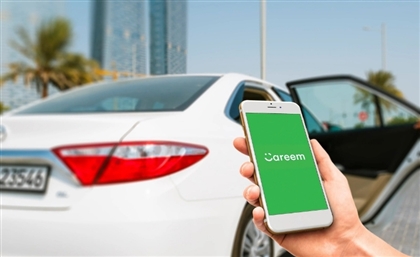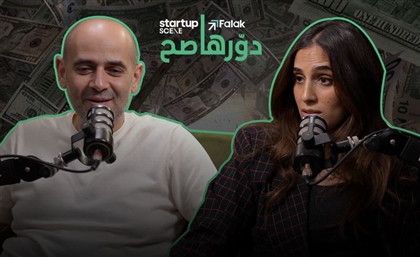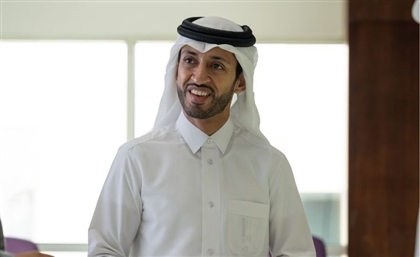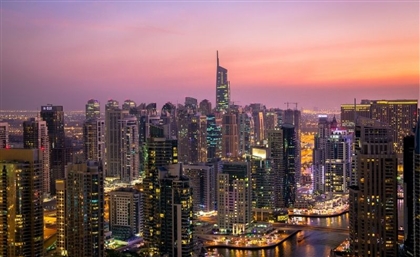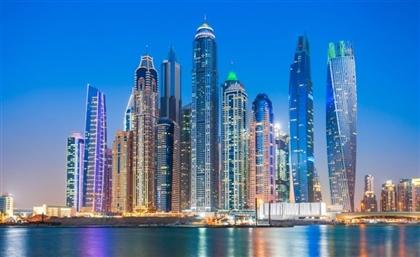7 Brands Proving That Arabic Names Are The Hottest Trend
Are Middle Eastern brands reclaiming their heritage? As more and more companies choose Arabic names to crystallise their identity, we speak to marketing experts across different sectors to unveil the social, cultural, and economic processes driving this paradigm shift.
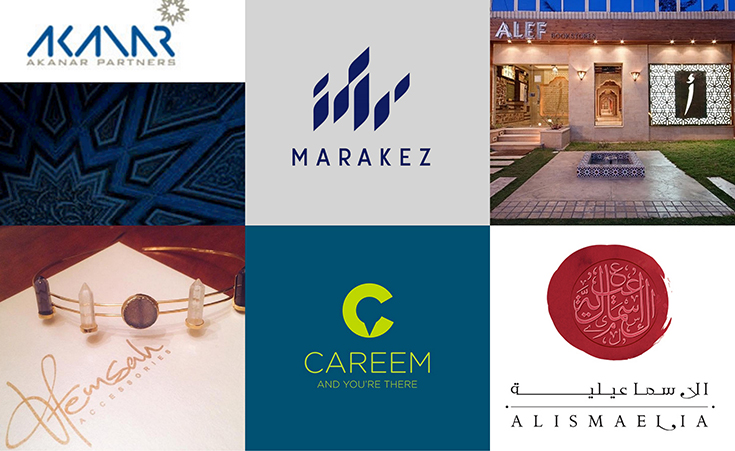
You could call it a symbolic revolution; a reclamation of linguistic sovereignty, or a trend nurturing a fresh boost to marketing practices and cultural heritage. Across a myriad of Middle Eastern industries, brands are ever more embedding the public sphere with Arabic names, sparking a creative wave where tradition, innovation, and local expressions come together.
While in the 1990s, foreign references – often Western – were a palpable reality in street signs and business cards, from Palm Hills to Maison Thomas and Mr. Wok, the past decade has witnessed an emergence of startups and major companies digging into their cultural roots in search of a brand identity that crystallises their culturally-embedded uniqueness.
From booming startups Bey2ollak, Nafham, and Fawry, to iconic names such as Abraaj and Marakez, the trend is permeating different industries, representing much more than the exemplary of a global tendency to localise content. This 'Arabisation' has more to do with a socio-cultural process that is the reflection, the result, and often the cause of paradigm shifts. These seven companies illustrate the nuances of a trend that, far from a fleeting fad, is here to stay.
Marakez
Founded in late 2015 by the largest retail developer in Saudi Arabia, Fawaz Al Hokair, the company is composed of young innovative Egyptians striving to build a mixed use development and management company in Egypt, from Mall of Arabia to residential developments. The meaning of its name centres around the emergence of architectural spaces as centres of life, illustrating the company’s vision to build and manage mixed use developments that are “the heart and soul of the communities they serve.”
“I think having Arabic branding is a regional trend that started in the Gulf,” says the company’s marketing manager, Ashraf Maklad. “They went through this issue as they realised that expats were overrunning their identity. The Gulf is now more ‘gulfy’ than 10 years ago,” he explains.
The marketing expert indicates that the process is related to a series of events that revived national pride, such as winning the African cup. “There is a newfound love for our language and our roots. Millennials are more proud of their heritage. It’s part of an identity crisis, and we are now forming our own identity. Listen to the music nowadays, there are electric guitars but Oriental sounds as well; it is neither too Western nor not too traditionally Egyptian,” he adds.
Alef
It was the first letter of the Arabic alphabet that came as the best option for this trademark Egyptian bookstore, which is now entering international arena through their first branch in London, UK. “We wanted a name that represents the identity and the origin of the company,” says its founder, Ahmed Rahmy, who embarked on a four-month brainstorming journey to come up with the most suitable name.
“We shortlisted 100 names through a survey among 3,000 friends and relatives, and narrowed them down to 20. We had picked Erana, but it was hard to pronounce for the non-Arabic speaking world, and we wanted to go global. So we thought of getting something simple,” explains the businessman.
The bookstore chain, which boasts 37 branches across nine governorates, from Alexandria and Mansoura to Tanta and Suez, has just opened their first store in England, set in London’s iconic Baker street. “Alef delivers our message perfectly, because it is the first letter and we are promoting knowledge, so it was a symbol for the beginning of knowledge. It is also a common letter in Hebrew and Arabic. It´s been a trend for the past six years to have Arabic names,” he adds. ”The type of companies opening now are different than 10 years ago, and a lot of startups are choosing it,” he concludes.
Careem
Founded in 2012 in Dubai and driven by the mission to provide convenient, reliable, and comfortable transport services, the startup set off to battle international giant Uber, a San Francisco-based company leading the global market with a value as high as $50 billion.
The brand not only took steps to adapt to the local market (by including the cash payment option) but also positioned itself as a local app through its name. Its brand name, a derivation of the Arabic word kareem (‘generous’ or 'to be free in giving or sharing') is the brainchild of co-founders, Magnus Olsson and Mudassir Sheikha, who aimed at stressing on the notion of meaningfulness. The company, which last year raised $60 million in a Series C round, has grown to cover 26 cities in the Middle East and North African region (MENA) and Pakistan, where it is operational in Karachi and Lahore.
Hemsah
The accessory brand, founded by 28-year-old entrepreneur Sara Samaha, has been making waves in the fashion world since its inception in 2013, with a name as intriguing as it is meaningful. “The name plays with the meaning of Fatima’s hand – often used in traditional Arabic jewellery - and the word 'hams', which in Arabic means whisper,” says Samaha. “It’s the idea of having whispers from different corners of the Earth, as I was influenced by a diversity of countries and cultures,” she explains.
The founder and artisan also admits to having been inspired by a quote from Rumi: ”Raise your words, not voice. It is rain that grows flowers, not thunder,” she recalls. The entrepreneur notes that many young businessmen are opting for Arabic branding, driven by a newfound sense of cultural pride. “People are starting to appreciate coming back to your roots more; it's something to be proud of. We come from a beautiful culture and Arabic is an incredible language,” she says.
Mazaya
In a field dominated by global brands, Mazaya (which means advantages in Arabic) has brought local traditions to the forefront of the smoking world.
Launched in 2010 by Alzawrae Company, a leader distributor in the Middle East for over a decade, the brand manufactures tobacco-molasses, which are inspired by the essence and heart of a practice deeply embedded in the Middle Easter identity: smoking shisha. Its logo tells the intimate details of a story made up by two faces that, as they come closer, unveil the features of their brand identity: the shape of a hookah outlined by their faces, illustrating the core message reminiscent of social meeting and linked to human affections.
Al Ismaelia
Concerned with restoring the classical grandeur of Cairo’s west el balad and preserving its typographical heritage, Al Ismaelia is a real estate investment company that has been making waves through the diverse initiatives they have organised in Downtown Cairo.
“As a company, we were very keen to keep the heritage alive through our branding and marketing activities,” says the company’s marketing manager, Moushira Adel. “Back in 2008, we called the company Al Ismaelia, which stems from the Egyptian identity, linking to the idea of reviving Downtown, which represents Cairo’s glory days,” she adds.
The company, which owns 22 signature properties in Downtown Cairo, was named after Al Ismaelia square, known today as Midan El Tahrir. “Downtown is divided into two halves: Ismaelia, named after Khedive Ismail - the fifth ruler of Egypt after Mohamed Ali - and Al Tawfikia, which is the new part of downtown,” she further explains.
The company has recently taken steps to revive historical street sign typographies through their project Khotout West Al Balad, which developed six new Arabic fonts through a team of researchers and graphic designers. “This project falls at the core of what Al Ismaelia is about, the restoration and preservation of the old neighbourhood and its revival in contemporary times,” Adel says.
Akanar
A Cairo-based firm focused on corporate finance, M&A (mergers and acquisitions) advisory, equity, debt raising and structured finance, Akanar Partners was founded in 2009, drawing inspiration for its name in the name of a constellation in Arabic, Akanar.
Since its founding, the company has advised on more than 17 M&A, capital markets, and debt transactions and, last March, it became part of Emirates-based firm Arqaam Capital, a leading specialist emerging markets investment bank.
- Previous Article Bassita: Click Funding for a Better Egypt
- Next Article New App Lets You Book A 'Vespa' For Your Next Ride
Trending This Month
-
Feb 02, 2026



